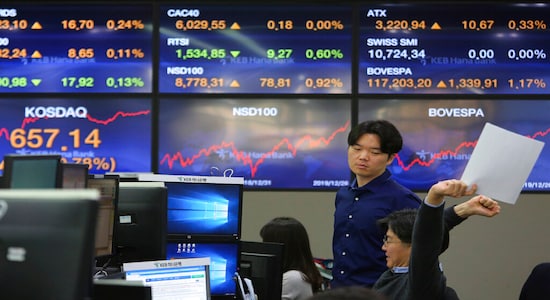
 1 / 10
1 / 101. Asia: Stocks in Japan led gains among Asia-Pacific markets in Tuesday morning trade as investors in the region react to more positive coronavirus vaccine news, as well as U.S. President-elect Joe Biden’s choice of former Federal Reserve Chair Janet Yellen as Treasury secretary. In morning trade, the Nikkei 225 jumped 2.59 percent while the Topix index advanced 2.31 percent. Markets in Japan were closed on Monday for a holiday. South Korea’s Kospi rose 0.81 percent. Elsewhere in Australia, the S&P/ASX 200 gained about 1 percent. MSCI’s broadest index of Asia-Pacific shares outside Japan traded 0.09 percent higher, reported Reuters)

 2 / 10
2 / 102. US: Stock futures climbed in overnight trading on Monday following a strong session on Wall Street boosted by positive vaccine news. Futures on the Dow Jones Industrial Average gained 200 points. S&P 500 futures rose 0.6 percent and Nasdaq 100 futures climbed 0.4 percent. The move higher in futures came after General Services Administration chief Emily Murphy told President-elect Joe Biden that the Trump administration is making federal resources available for his transition into office, reported CNBC International. (Image: AP)
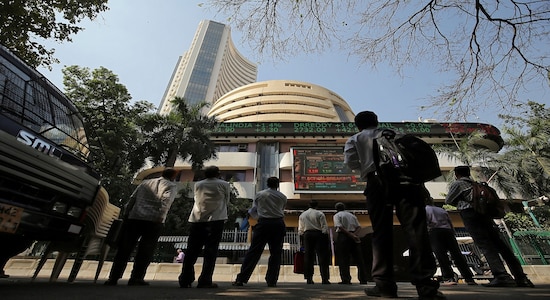
 3 / 10
3 / 103. Closing On Monday: The Indian benchmark equity indices, Sensex and Nifty, ended higher on Monday led by gains in IT and pharma stocks amid positive global cues. The Sensex ended 194.90 points or 0.44 percent higher at 44,077.15, while the Nifty gained 67.40 points or 0.52 percent to close at 12,926.45. Nifty Bank ended 212 points lower at 29,024. During the day, Nifty hit an intra-day record high of 12,969 and Sensex 44,271. Broader indices outperformed the benchmarks with Nifty Smallcap100 rallying 2 percent and the Nifty Midcap100 index gaining 1.31 percent. Among sectors, Nifty IT rallied the most over 2 percent followed by Nifty Pharma and Nifty Metals that rallied over 1 percent each. Meanwhile, selling was witnessed in banking and financial stocks.(Image: Reuters)

 4 / 10
4 / 104. Crude Oil: Oil prices rose more than 1 percent on Monday, extending last week’s gains as traders eyed a recovery in demand due to successful coronavirus vaccine trials. Brent crude rose 92 cents, or 2 percent, to $45.89 a barrel, while West Texas Intermediate crude settled 64 cents, or 1.51 percent, higher at $43.06 per barrel. Both benchmarks jumped 5 percent last week, reported CNBC International.(Image: Reuters)
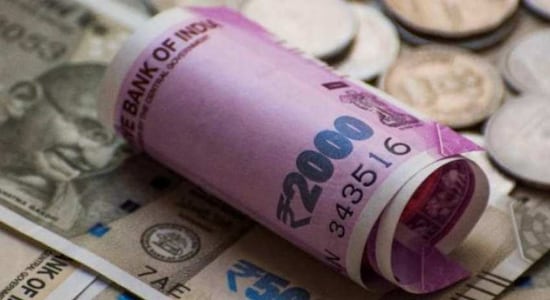
 5 / 10
5 / 105. Rupee: The rupee appreciated at more than a two-week high of 74.11 against the U.S. dollar on Monday tracking positive domestic equities and weak American currency. At the interbank forex market, the domestic unit traded in a narrow range as rising Covid-19 cases offset positive sentiments surrounding the progress on the vaccine front. The rupee finally settled at 74.11 -- the highest closing level since November 6 -- with gains of 11 paise. On Friday, the local unit had settled at 74.16 against the greenback, reported PTI (Image: Reuters)

 6 / 10
6 / 106. Centre To States On COVID-19 Vaccine: The government anticipates that the vaccine could have some serious side-effects and has thus asked states to be ready at district levels to deal with these. In a recent communication sent to states last week, with about a dozen of mandatory requirements, to prepare states in advance, to deal with side-effects of the COVID-19 vaccine, the union health ministry has asked all states and Union territories to gear up medical surveillance for reporting side-effects during the immunization drive. “The letter was written by the centre on November 18, in the backdrop of a series of communications to prepare the backend infrastructure ready for covid-19 vaccination. Since it is anticipated that vaccination process will get started soon, centre’s health ministry has asked states and union territories to strengthen the mechanism for reporting side-effects of Covid vaccines after its administration,” said a senior state health ministry source. (Image: Reuters)
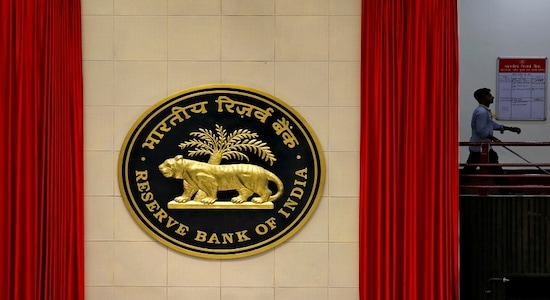
 7 / 10
7 / 107. Bank Licences For Corporates, NBFCs Receive Criticism: The past 24 hours have seen some respectable entities and experts speak out against the suggestion of RBIs internal working group to give bank licences to corporates. Critics range from brokerage Credit Suisse to ratings agency S&P to former RBI governor Raghuram Rajan and deputy governors NS Vishwanathan, SS Mundra and Viral Acharya. Calling the recommendation "surprising", Ashish Gupta, one of the most respected banking sector analysts, points out: "Globally regulators have moved away from this [corporates owning banks] and most Asian markets [Australia, Korea, Indo, Malaysia, etc] also cap corporate stakes." He added, "Given the high failure rate observed in large conglomerates in India, we believe this would add to financial stability risk." Ratings agency S&P also sounded alarm bells. "We are, skeptical of allowing corporate ownership in banks given India's weak corporate governance amid large corporate defaults over the past few years," wrote S&P Director Geeta Chugh. She argued that in addition, any weakness in the corporate sector will have a contagion impact on the financial sector. (Image: Reuters)
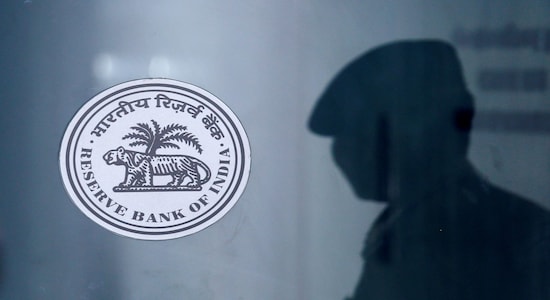
 8 / 10
8 / 108. S&P Global Ratings On RBI's Recommendations: The recommendations made by the Reserve Bank of India's (RBI) working group on allowing corporate ownership in banks given India's weak corporate governance amid large corporate defaults over the past few years pose a potential risk, said S&P Global Ratings. The agency believes that RBI will face challenges in supervising nonfinancial sector entities and supervisory resources could be further strained at a time when the health of India's financial sector is weak. According to S&P Global, the working group's concerns regarding conflict of interest, the concentration of economic power, and financial stability in allowing corporates to own banks are potential risks. “Corporate ownership of banks raises the risk of intergroup lending, diversion of funds, and reputational exposure. Also, the risk of contagion from corporate defaults to the financial sector increases significantly,” the global rating agency said in a report. (Image: Reuters)
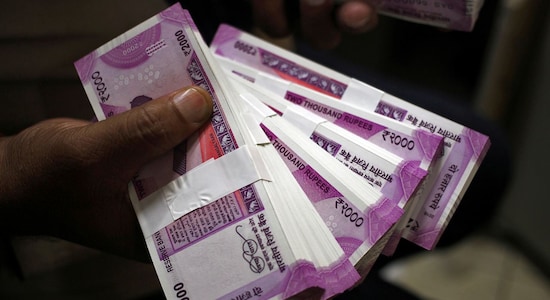
 9 / 10
9 / 109. Chief Economic Adviser On Current Account Surplus: India is likely to report a current account surplus at the end of the current financial year ending in March 2021, mainly led by a fall in imports, the chief economic adviser at the ministry of finance said on Monday. India’s current account surplus rose to a record USD 19.8 billion in April-June as its trade deficit narrowed sharply, the Reserve Bank of India said earlier. Demand for imports has fallen amid the COVID-19 pandemic, coupled with recent economic reforms initiated by the government to boost manufacturing, Krishnamurthy Subramanian told a virtual conference organised by Confederation of Indian Industry (CII). (Image: Reuters)

 10 / 10
10 / 1010. SEA On Edible Oil Imports: India’s edible oil imports are estimated to remain range-bound at 12.5-13.5 million tonne in 2020-21 oil year due to sluggish hotel consumption in the wake of COVID-19 and a possible rise in domestic production, according to trade body SEA. The country’s edible oil imports declined 13 percent to 13.52 million tonne in the 2019-20 oil year (November-October), it said. ”We are pegging imports to remain range-bound between 12.5 to 13.5 million tonnes in 2020-21,” Mumbai-based Solvent Extractors Association of India (SEA) President Atul Chaturvedi said in a statement. Edible oil imports may be restricted because of hopes of higher domestic oilseed production and expectation of 1-1.5 million tonne higher edible oil output. Poor demand due to lower out of home consumption in the wake of the COVID-19 pandemic will have a bearing on imports this year. ”India is a price-sensitive market and high prices may affect consumption negatively,” he said. (Image; Reuters)

